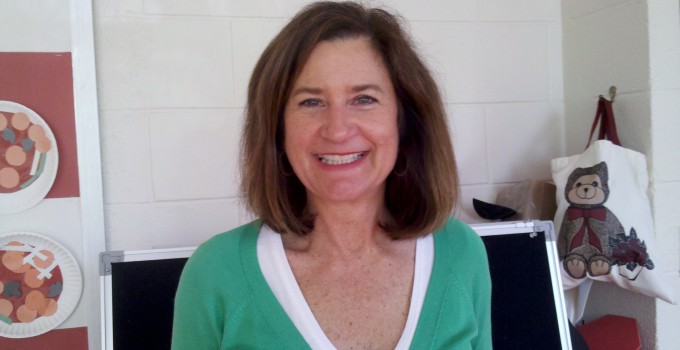Profiles in Education


“Enjoy these years,” University League Nursery Director Cynthia Williams counsels parents of preschoolers. “They go by very quickly. Slow down and let your child discover the world around them, and remember parents are your child’s first teachers and the most important ones in your child’s life.”
Now in her eighth year as director of the University League Nursery School (ULNS), Cynthia Williams said that “the love of children and enthusiasm for learning and teaching” brought her into early childhood education. Although she started out with a degree in Food Science and Nutrition, she took postgraduate courses for certification in education, and before becoming director, Ms. Williams taught at ULNS for thirteen years.
“I love little ones,” she said. “What they say makes you feel good all day. They’re so enthusiastic; it makes you enthusiastic.”
ULNS, which was founded in 1949 and is located at 171 Broadmead Street, is a cooperative nursery school, which means that parents who help with daily activities are also getting a first-hand glimpse of teacher-children interactions and that, said Ms. Williams, is a good thing. Further parent education and encouragement takes the form of regular conferences, as well as special programs with experts. Most recently, Riverside School Principal Bill Cirillo, along with two Kindergarten teachers, spoke to pre-K students, parents, and teachers about the year ahead.
“Parents worry about Kindergarten readiness,” commented Ms. Williams. “They need to know that their kids don’t need to be reading when they enter elementary school.” Instead of pushing for more academic skills, the pre-K emphasis should be on fostering “social skills and strong emotional health,” she suggested.
ULNS parents are encouraged to “read and talk with their children and foster independence through self-help skills. These are acquired by including children in household chores, family life, family dinners, and exploring the world together. Play dates,” Ms. Williams added,” are a good way to strengthen social skills and empathy.
The word “University” in the school’s title is not a coincidence. Priority is given to children of University faculty, staff, and graduate students, who make up about two-thirds of the ULNS population, which hovers around 112. The other third is drawn from the outside community. Either way, parents are required to appear regularly to help out in the classroom. (The summer program is not cooperative.)
ULNS may be 63 years old, but its routines and structure are definitely not. “It’s important to address changes in society,” said Ms. Williams, who succeeded Pamela Betterton as director of the school. A full-day program was created in response to the increased number of working parents, and multiple pick-up times are available during the course of the afternoon. The classroom presence of fathers as “helping parents” is more common, and so is awareness of food allergies, reported Ms. Williams. And, her desire to emphasize social skills notwithstanding, a special after-lunch Spanish enrichment program may be in the offing as a result of a parent survey.
Asked about “a typical day,” Ms. Williams laughed and described herself as “a problem-solver all day long. I’m part teacher, but I also like the business of running a school.”
“I do everything,” she added. “Check on weeds, carry out fiscal responsibilities, work with the University; every day is different.” A real boon to her job, she said, is a “wonderful, stable group of teachers who are friends with each other and devoted to early childhood education.” Along with qualified, experienced teachers, other important pre-school qualities parents are advised to look for are “low teacher turnover; low student-teacher ratio; a strong organized administration; parent involvement, and National Association for the Education of Young Children (NAEYC) accreditation.
For more information, visit www.ulns.org. To learn more about NAEYC, go to www.rightchoiceforkids.org.

